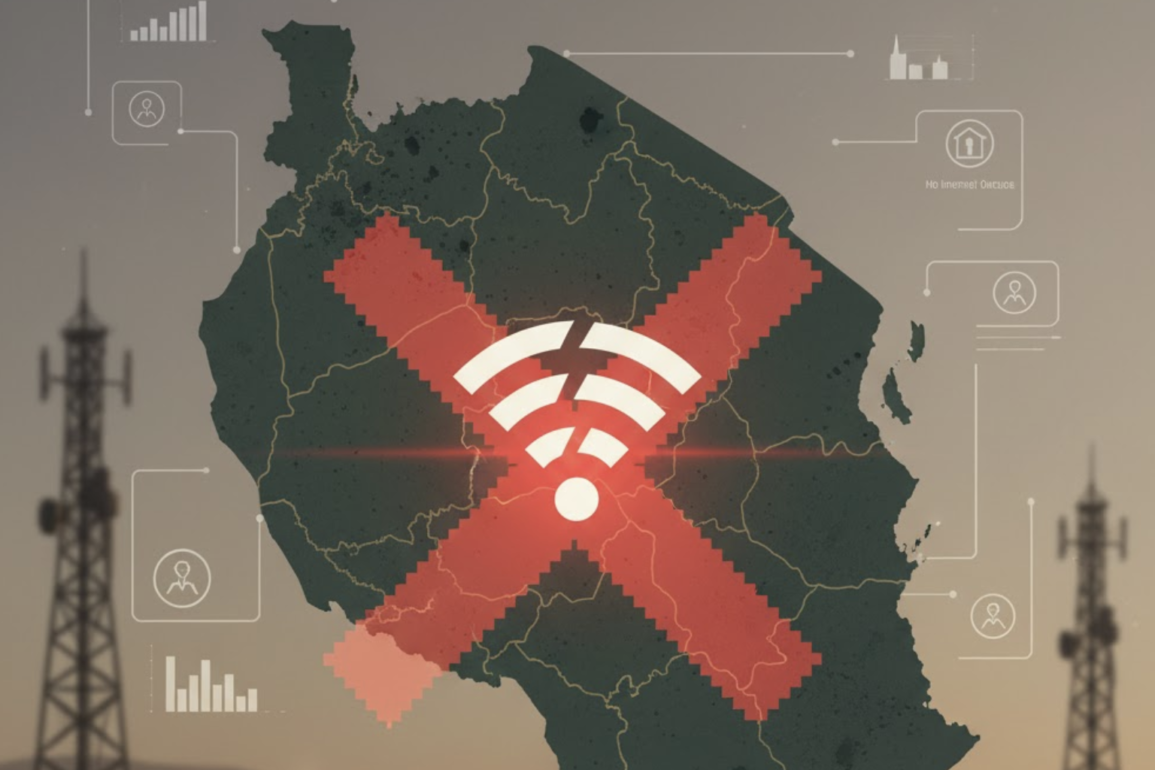Human rights advocates and digital policy experts are condemning Tanzania’s recent nationwide internet shutdown and the continued suspension of X (formerly Twitter), warning that the disruptions are not only silencing citizens but also crippling the country’s digital economy.
In a statement, Lagos-based Paradigm Initiative (PIN) said it remains “deeply concerned” about the blackout that blanketed Tanzania during its election period — a move it described as “economically devastating and deeply damaging to digital rights.” Connectivity was cut off from October 29 to November 3, a span of five days and six hours, while access to X has been blocked since May 21, 2025.
“These actions are in blatant defiance of international human rights standards,” PIN said, citing Articles 9 and 19 of the African Charter on Human and Peoples’ Rights and the International Covenant on Civil and Political Rights, which protect freedom of expression and access to information.
According to data from the NetBlocks Cost of Shutdown Tool (COST) — which uses methodologies developed by the Brookings Institution and data from the World Bank, ITU, and Eurostat — the two disruptions have cost Tanzania more than $238 million (TZS 560 billion) in direct economic losses.
The five-day national shutdown alone led to losses estimated at $72.3 million (TZS 170.27 billion) — or about $13.8 million (TZS 32 billion) per day — from interrupted productivity, trade, and digital services. The ongoing 166-day suspension of X has cost the economy $165.8 million (TZS 390.33 billion), roughly $1 million (TZS 2.3 billion) per day, according to NetBlocks.
“Every shutdown chips away at trust, investment, and human potential,” said ‘Gbenga Sesan, Executive Director of the Paradigm Initiative. “Governments must realise that in today’s world, connectivity is the foundation of opportunity. Shutting down the internet silences citizens, stalls economies, and sets entire nations back.”
While Tanzania restored general internet connectivity on November 3, users across Dar es Salaam, Arusha, and Dodoma report that access remains throttled on several networks, with slow speeds affecting messaging and streaming services.
The blackout, imposed during a politically sensitive election period, comes amid global concern over the use of internet disruptions as tools of state control. According to the Access Now 2024 Internet Shutdown Report, Africa recorded 37 internet restrictions last year — the highest since 2019 — with Ethiopia, Sudan, and Senegal among the worst offenders.
PIN’s statement also cited Article 22 of the African Charter, which recognizes the right to development — a right the organization says is violated when governments block digital access. “Internet shutdowns have a measurable impact on GDP and human development,” the group said, adding that the losses extend beyond economics to include “security gaps, information black markets, and disruptions to mobile payments and health systems.”
The African Commission on Human and Peoples’ Rights has previously warned against such actions. Its Resolution 580, adopted in 2023, calls on member states to ensure “unrestricted and uninterrupted access to the internet in the period leading up to, during, and after elections.”
PIN has urged the Tanzanian government to take immediate action by restoring full access to X and all restricted platforms, halting any further internet disruptions during democratic processes, and requiring Internet Service Providers (ISPs) to publish transparency reports whenever they are directed by the state to restrict or throttle services.
Tanzania’s Ministry of Information has not yet responded to requests for comment. However, officials have previously justified social media restrictions as necessary to curb “the spread of misinformation and incitement during elections.”
Analysts warn that such measures risk isolating Tanzania’s digital economy. The country, home to more than 31 million internet users, has been one of East Africa’s fastest-growing digital markets, with startups in fintech, e-commerce, and mobile payments contributing nearly $2.3 billion to GDP in 2024, according to the World Bank.
Now, those gains could be in jeopardy, as the future of development in Africa depends on keeping the internet open, not shutting it down.




